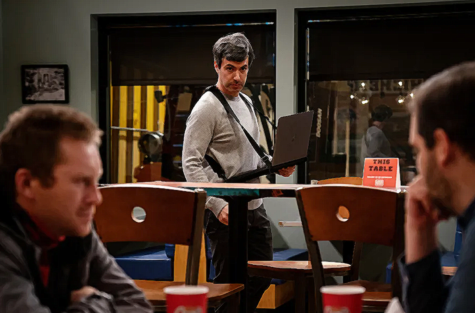“The Rehearsal”: Blurring the lines between reality and tv
August 24, 2022

Sweaty palms, a thumping heartbeat and a racing mind: the anxiousness before any gut wrenching event is by no means a desirable emotion. But what if I told you there was a way to overcome that feeling? What if I told you there was a way to know all the possible outcomes? Lucky for you, there might just be a way.
In “The Rehearsal,” Nathan Fielder helps people confront difficult situations by allowing them to “rehearse” the moment of conflict. Fielder did this by replicating real locations, hiring a series of actors to imitate the people involved in the situations and running through different outcomes so that the subject can begin to feel comfortable no matter what happens in the real life situation.
Following the Comedy Central show “Nathan For You,” “The Rehearsal” was released in July 2022 on HBO. “The Rehearsal” was renewed for a second season earlier this month.
“The Rehearsal” departs from Fielder’s previous work, “Nathan For You,” in that it is directly involved with the personal lives of the subjects, rather than keeping a comfortable distance by sticking to business aspects.
A stark difference is that Fielder becomes increasingly more involved himself, becoming part of the social experiment and using it to benefit his own emotional development. Throughout the show, Fielder’s involvement continues to grow into a space that — for the viewer — can become uncomfortable as the divide between comedy and documentary seemingly starts to disappear.
While the show began as a way to help people with situations they were scared to face, it very quickly devolved into documentary-like look into co-parenting. The penultimate episode focuses on the religious tension between Fielder and his co-parent as they fail to compromise on the religion the child is raised with.
In the final episode, we get a look into how Fielder’s “Rehearsal” impacts the individual child actors; without a father at home, one of the children gives a tearful goodbye and the mother explains how his experience of finally having a father played into his unwillingness to leave. Another mother asks Fielder to clarify the difference between Judaism and Christianity to her child — making a point that the child is raised as a devout Christian, and that Fielder had to clarify that Christianity was the “correct” religion.
The entire show becomes so convoluted that, at times, it becomes hard to believe that most of it is real. It is a mind-boggling, bizarre concept of a show that left me befuddled and confused as to how I should feel about the superficial yet seemingly-real situations taking place.
While “The Rehearsal” definitely includes comedic moments, it also raises plenty of questions about the boundaries between reality and cinema, and whether it is morally acceptable for the viewer to laugh.






















Leave a Comment